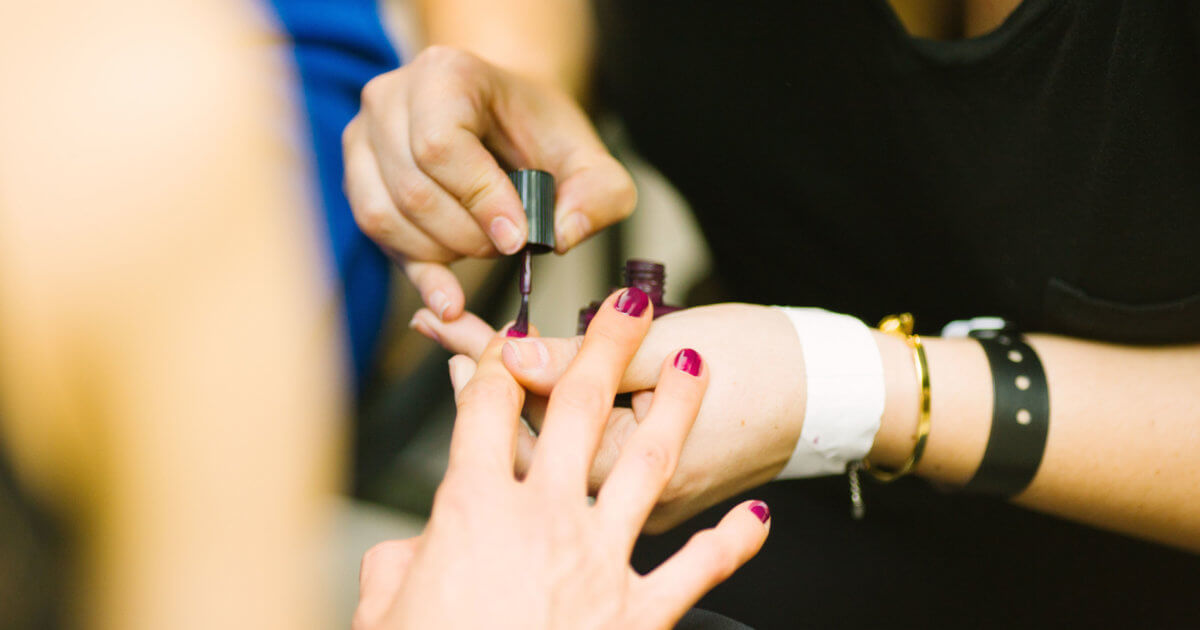A mani-pedi appointment is a luxury carved out of a hectic weekly schedule for most people. It's a time to relax, get pampered or prepare for a special event. As summer and wedding season approaches, the masses flock to salons for routine pedicures so they can show off in open-toe heels, sandals and flip-flops. Chances are these people are not thinking about cancer when they are staring at a rainbow wall of nail polish bottles deciding between colors like marshmallow, tropical punch and park ave.
Don't worry: Despite some recent reports and subsequent buzz that nail salons are actually a cancer risk, the nail gels and polishes used in manicures aren't causing cancer.
Read MoreLupita Montoya, lead author of the research and Research Associate in The University of Colorado, Boulder’s Department of Civil, Environmental and Architectural Engineering told Forbes that “better policies need to be enacted to protect beauty professionals, because these are the people constantly exposed to the chemicals.”
Dr. Shah agrees professional manicurists and hairdressers who are exposed to the chemicals on a daily basis do face health risks. "Hairdressers who handle a lot of hair dyes are historically known to have a higher risk of developing bladder cancer, " says Dr. Shah.
Though, he also points out: “Unless there is some specific cause for you to be worked up for bladder cancer, you don’t need to get screened for it.”
The researchers at University of Colorado studied workers in 6 nail salons and also modeled the impact of the increased exposure to benzene and formaldehyde over 20 years on the risk of the workers developing certain types of cancer.
But before you cancel your appointment at the nail chain or rethink a hair treatment, note that the study also found that the benzene findings were not consistent with previous nail salon studies. And in other news, the three salons with the highest benzene levels were also in close proximity to gas stations, a known source of high benzene levels. The location of the salon has to raise questions about what is or isn't causing cancer and the validity of this study.
Cigarette smoke, 100 percent confirmed to cause cancer, also contains high levels of benzene. One has to wonder, is the affected manicurist a smoker? Was she or he a smoker in the past? Does his or her partner, or anyone for that matter, expose them to second-hand smoke? No one knows.
A big red flag: Lauren Teras, Senior Principal Scientist in the Epidemiology Research Program for the American Cancer Society, says no one knows for sure if the participants in the study were exposed to direct smoke, or other non-salon-related sources of pollution.
So, while 70 percent of nail salon workers reported experiencing at least one symptom possibly related to exposure to the VOCs, including eye and skin irritation and headaches at this juncture, the study is unable to link cancer to chemicals used in nail and hair salons.
If you're worried about exposure to chemicals during beauty treatments, take relief in the fact that it is very important to note that people who visit salons for short periods of time, or do their own nails at home are unlikely to be exposed to a significant concentration of these chemicals.
Bottom line: Further research is needed to assess the health risks of employment in the nail salon industry. Go get your summertime pedicure with ease.
Learn more about SurvivorNet's rigorous medical review process.

